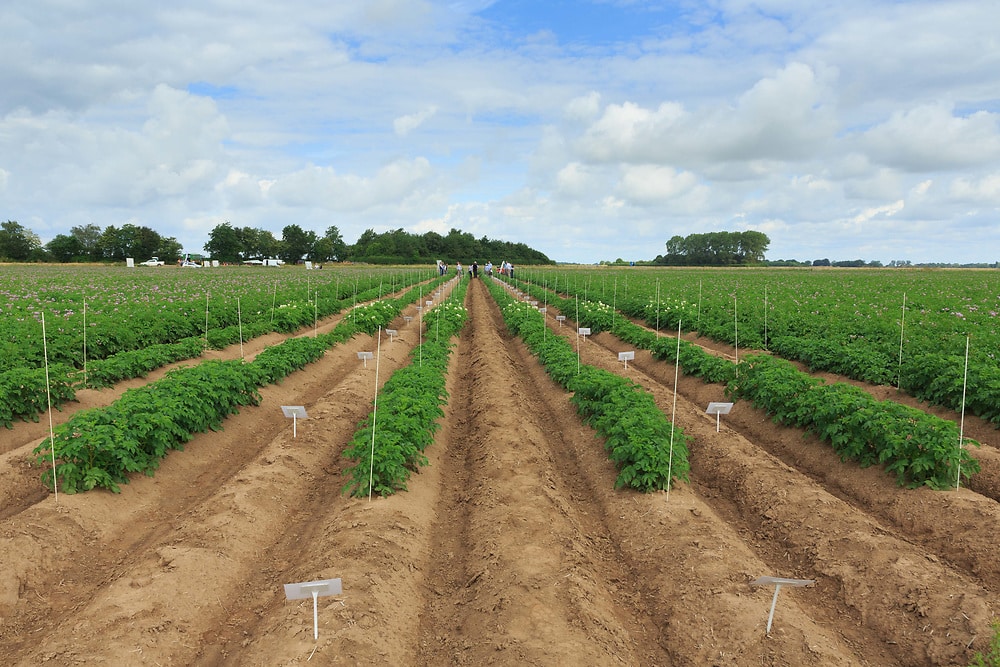Mechanics of regenerative potato crops – Farmers Guardian
As consumers seek food sustainability, McCain has announced its ambitious regenerative targets, and one Shropshire potato grower shares how he has implemented the strategy on-farm during Hutchinsons' Agroecology Conference ...
With growers facing increasing challenges from climate change and variable weather, potato processor McCain has partnered with its growers and committed to implementing regenerative agricultural practices across 100 per cent of potato acreage worldwide by 2030.
To steer this regenerative journey, the company has developed the McCain Regenerative Agriculture Framework’, which was developed in consultation with growers to provide seven progress indicators measured across four competency levels.
James Young, vice-president of agriculture at McCain Foods, says: “We have an adapted definition of regenerative farming and the framework allows growers to pick and choose the indicators that work for them, rather than having a prescription model.”
Farming 800 hectares in Newport, Shropshire, John Bubb currently grows 160ha of potatoes on a one-in-six rotation – including wheat, oilseed rape and flowers for confetti – on sandy loam soil.
In order to implement regenerative farming practices for McCain, Mr Bubb first addressed soil health. He describes the soil as being in a ‘poor biological state’, as potatoes have been grown on a one-in-three rotation since the 1970s, resulting in high levels of potato cyst nematode. This requires extensive chemical controls that cost roughly £50,000 per year, according to Mr Bubb.
However, he has since managed to reduce the farm’s nematicide uses from 90 per cent of the potato area previously treated to just 8 percent.
Implementing a catch crop after OSR but before wheat and utilising diverse cover crop mixtures have also been introduced to the rotation, aiding soil health and structure.
Mr Bubb says: “For cover crops, we use Hutchinsons Maxi Veg cover crop mix, which includes linseed, buckwheat, phacelia, vetch, and clover, but we have also brought oats to go in the mix.
“We use this category of cover crop twice in the rotation to monitor for disease, and we terminate them using both machines and glyphosate. Since using cover crops, we have been able to reduce the cultivations with the aims of decreasing passes and minimising the intensity of what we do.”
Cultivation
Reducing cultivation depth and the number of passes plays a large part in the regenerative journey.
“In the potatoes, we have been able to eliminate some passes, and we try not to plough but we use a [one-passtine and disc] DTX cultivator instead,” says Mr Bubb.
“We have also managed to reduce the depth of the destoner. Something that was developed by McCain and Grimme is share tines with subsoiler tines attached to the bottom of the destoner to remove any plough pan, which can save passes. We have seen yield benefits from using this in certain weather conditions.”
Mr Bubb is also seeing less bed tilling due to implementing this machine and only using a bed tiller when really needing to.
“We have a lot of stones where we are, so there is concern about bruising at harvest. We can get away without destoning some fields, but on the whole, destoners still have a place in reducing bruising, so there is work to be done there,” he says.
Overall, these management changes have made the crop more resilient and profitable, with no noticeable impact on yield.
The increase in organic matter has also helped with water retention and reduced the amount and frequency of irrigation requirements.
- 800 hectares of arable land, based in Newport, Shropshire
- Sandy loam soil
- Rotation: potatoes (grown one-in-six), wheat, oilseed rape and flowers for confetti
- Regenerative practices: cover and catch crops, reducing cultivation depth and passes, lowering chemical inputs
